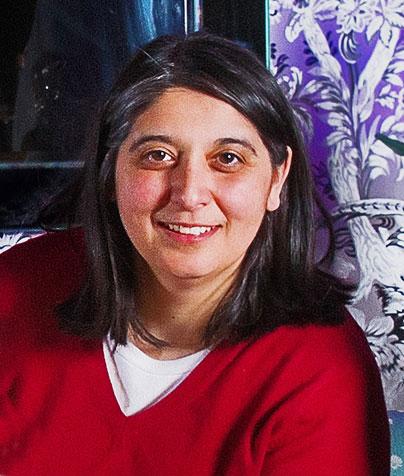It is easy to talk to Patrizia Gentile.
She is laid-back, has a wonderful sense of humour and is not afraid to talk about her life, her feelings and where she finds herself today. Our conversation starts with her laughing about being nominated as Xtra’s Lifetime Achievement Hero.
“I was really shocked when I got the email. At first I thought it was a little bit of a joke. My friends often joke that I have too much of an ego,” she says. “At the same time, once I realized that it wasn’t a joke, I felt really humbled.”
Like most of Xtra’s heroes, Gentile is unwilling to take credit for what she has achieved. In her opinion, she is first and foremost a historian who spent 15 years digging up queer history in Canada.
In 2010, Gentile co-authored a book with Gary Kinsman, The Canadian War on Queers: National Security as Sexual Regulation. “Although the book I wrote with Gary feels like activism, to us it was more a labour of love,” she says. “We felt it was important to get the voices of the people who had been silenced, that that’s a very political thing to do.”
Gentile’s first foray into activism was during the ’80s and ’90s when she was a student at McGill University. It was not that she chose activism but more that she found a community that accepted her. It was also a community galvanized by fighting HIV/AIDS and, in her own words, the “stigmatization of HIV/AIDS as the way to solve the sin of being queer.”
“That kind of activism really helped, not just for me to meet people socially and to find a community,” she says. “At the same time, because it was around fighting against HIV/AIDS, it politicized me — it created that mark that took me to where I am today.”
Gentile’s journey has been a convoluted one. Her struggle to find a queer identity was exacerbated by the fact she came from an immigrant Sicilian family where homosexuality was not accepted. “It’s not necessarily a choice to reject my culture. My culture is part of my identity, and I love my family even if there is a lot of homophobia. So, I think that for me, my journey as a queer person — which is continuing — I think has been a very difficult road,” she says.
As a teenager in Montreal, Gentile used to escape from what she felt was the “tyranny of my community around homophobia” by catching the metro to Ste-Catherine St. She would stand in the crowds, soaking up the atmosphere before returning home. Each year she would also sneak off to the Pride parade. “When everything around me felt like I was always unsafe because I was queer,” she says, “[Pride] created this one moment in time of safety and celebration and feeling okay.”
When she went to McGill University, Gentile‘s struggle to balance her culture with her own identity continued. Although she found a community, she was unable to reconcile her sexuality with her family until she found her niche in history.
“Part of becoming a historian interested in queer history and the history of sexuality has been a way of me talking about it as a way of me trying to cope with a lot of epistemological violence that comes with being queer in an ultra-traditional religious context,” she says.
Although Gentile says the fear that she has lived with all her life abated when she turned 40, the cultural stigma still resonates within her. “When I think about it, I still have a lot of fear. That’s why this idea of being a hero also feels a little bit fraudulent to me because there’s this sense that if you are a hero you’re past it all, that you’ve somehow arrived,” she says. “I still have residual fear about the culture I came from and being queer and having to find that point of balance.”
In spite of her struggle, Gentile has published a book, is a full-time professor of sexuality studies at Carleton University, volunteers at the sexual assault centre and is a mentor to young activists in her classes.
It is these youth Gentile has the utmost respect for. “They really see themselves as something greater than just this one identity around being queer,” she says. “When I think about queer youth, this generation of activists, of how they have integrated their queerness in a multiplicity of ways, not just marching in rallies, that actually they are really quite radical because they are changing discourses, actions and behaviours at every moment.”
Gentile says being surrounded by a new generation of activists is a constant source of inspiration and energy that takes her out of her ivory tower of academia and keeps her plugged in.
Maintaining energy and keeping active in the community is what keeps her going. “Otherwise we just become complacent, and that allows for the silences in my mind. I don’t want to wake up as an old lady and say, ‘I wish I had done that thing, where there was that revolution happening, but I was too busy reading my book,’” she says. “I don’t want to be that person. I think that volunteering and being part of something that is bigger than yourself keeps you grounded.”

 Why you can trust Xtra
Why you can trust Xtra


